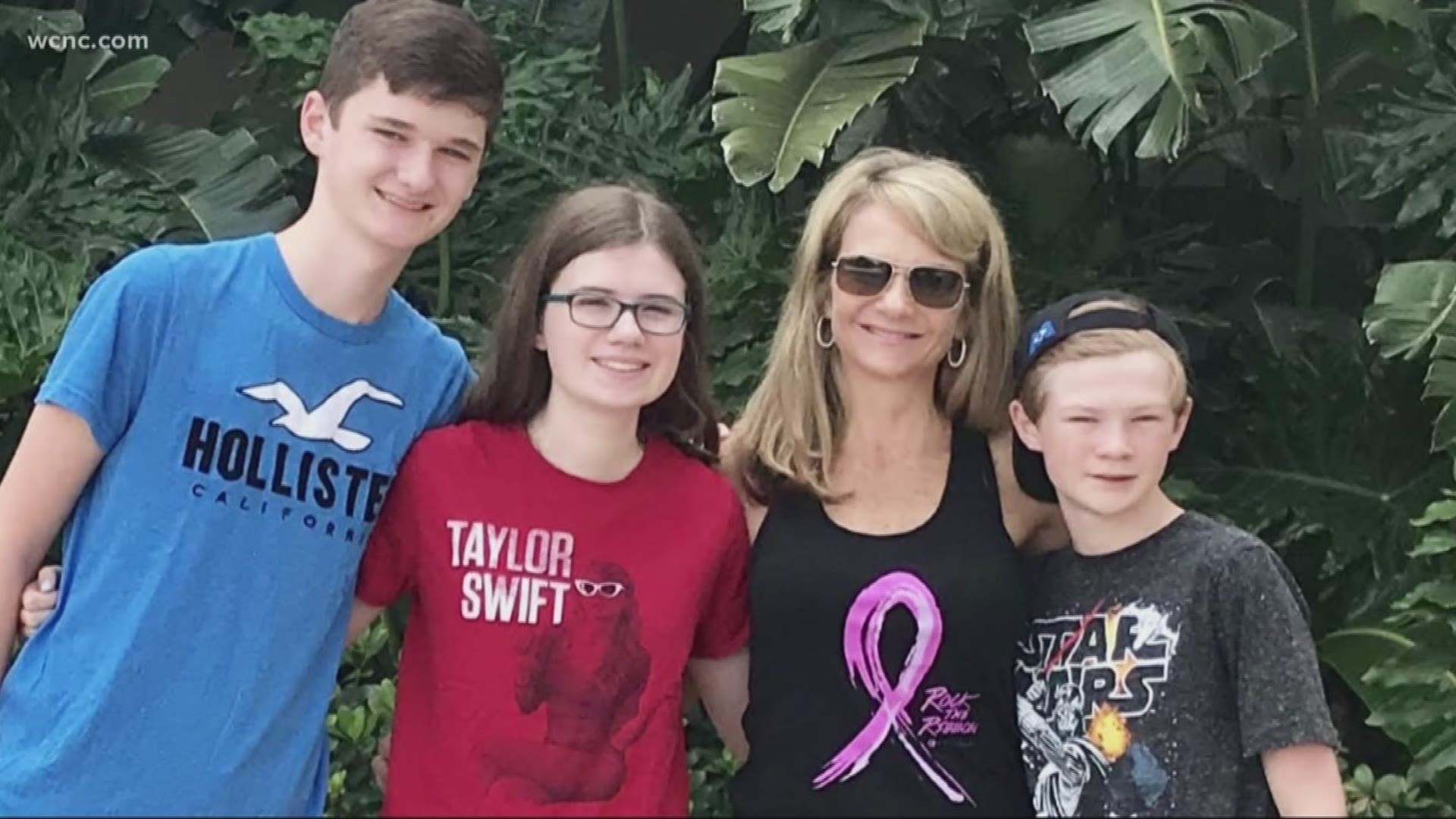CHARLOTTE, N.C. -- More than 200,000 Americans are diagnosed with breast cancer every year.
The good news, however, is more are surviving thanks to better diagnostic tools like surgical techniques and targeted therapies. Yet, breast cancer will claim the lives of more than 40,000 women this year, which is second only to lung cancer.
It is the leading cause of cancer deaths for women in the United States. Early detection is key and the American Cancer Society recommends women ages 45 to 54 to get mammograms.
Maura McCarthy was only 41 years old when she was diagnosed.
"I felt like they had gotten the wrong person and mixed me up with someone else because I didn't feel it," McCarthy said. "I felt healthy."
She said there was also no history of cancer in her family. McCarthy was brought back after a routine mammogram for a biopsy but she had to wait a week for the results to come back.
"I can't imagine what that waiting process was like for the whole week," NBC Charlotte anchor Sarah French told McCarthy.
"It's definitely grueling ya know," McCarthy said. "Trying to be positive and put it out of your mind, but at the same time preparing. About a week later, I was brought back in because they won't give you results over the phone and sat in a room and was told that it was cancer
"What was that like when those words came out of the doctor's mouth that you have breast cancer?" French asked.
"Shocking," McCarthy said. "Still to this day, it seems surreal."
McCarty chose to have a double mastectomy so she wouldn't have to go through radiation. However, the hardest part for her was telling her children.
"They were shocked but at the same time, they had known stories of women who were still here and surviving so I think that is what gave them hope," McCarthy said. "I was strong for them but I also learned that strong doesn't mean you don't cry.
McCarthy learned to turn her pain into her purpose. She began working with BCC Rally and the Pink Bow Campaign, which started 15 years ago and raised almost $2 million for breast cancer.
"This Pink Bow Campaign started out as a way to show solidarity for those who were fighting breast cancer but now, I also view it as a way to remind people about their mammogram."
McCarthy also found another way to cope after her diagnosis.
"One of my doctors had recommended to me to find something for yourself. Whatever it is, that's a goal for you to move forward," she said.
And she did, by putting one foot in front of the other. She ran for the Susan G. Komen Race for the Cure, which was her first half-marathon.
"Yes, I had breast cancer but I'm a thriver," McCarthy said.
McCarthy is proving to everyone that even after a cancer diagnosis, with the help of family, friends and a little encouragement, you can move forward to help others along the way.

